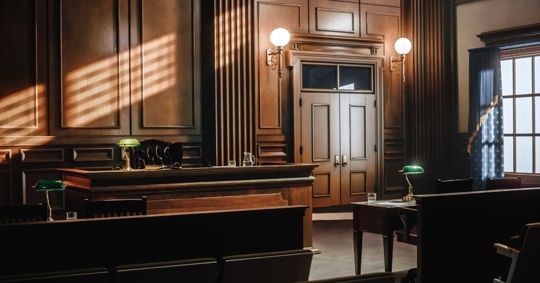The criminal justice system, while aiming for accuracy and fairness, is not always perfect. Sometimes, despite best efforts, innocent people are wrongly convicted, or defendants receive harsher sentences than they deserve. In such cases, the appeals process offers a mechanism for reviewing and possibly reversing the outcome of a criminal trial. However, the appeals process can be complex, lengthy, and uncertain, and not all convictions are eligible for appeal. We take an in-depth look at the appeals process for criminal convictions and discuss when and why someone should appeal a conviction, the different types of appeals, possible outcomes of an appeal, and factors that impact an individual's ability to pursue an appeal and secure a successful outcome.
When to Appeal a Conviction
First, it is essential to understand that appeal does not mean redoing the trial. Appeals courts do not retry the case or determine innocence or guilt. Instead, appeals courts examine whether the trial court made any legal errors that affected the outcome of the trial, such as wrongly admitting evidence, improperly instructing the jury, or violating the defendant's constitutional rights.
Therefore, a conviction alone is not enough to appeal. The defendant must have a viable legal basis for challenging the conviction or the sentence.
Common Reasons for Appealing a Conviction
Some common reasons for appealing a conviction or sentence include:
- Errors in the admission or exclusion of evidence
- Misconduct by the prosecutor or jurors
- Ineffective assistance of counsel
- Violations of due process or constitutional rights
- Errors in the judge's instructions to the jury (however, not all errors are significant enough to warrant an appeal)
The defendant must show that the error was prejudicial and affected the outcome of the trial. Additionally, depending on the jurisdiction and the type of conviction, there may be different time limits for filing an appeal, generally ranging from days to months after sentencing.
Types of Appeals
Once a defendant decides to appeal, the next step is to determine which type of appeal is appropriate. The most common types of appeals are direct appeals, collateral appeals, and post-conviction appeals:
- A direct appeal goes directly to the appellate court, which reviews the trial record and any legal briefs filed by the parties.
- A collateral appeal involves challenging the conviction or sentence indirectly by filing a separate lawsuit or motion, usually habeas corpus or 2255 motions.
- A post-conviction appeal is similar to a collateral appeal, but it is filed after a direct or collateral appeal and based on new evidence or changed circumstances. The type of appeal available depends on the jurisdiction, the legal basis for the appeal, and the stage of the criminal process.
Possible Outcomes of an Appeal
The ultimate outcome of an appeal depends on various factors, such as the strength of the legal arguments, the appellate court's discretion, the original trial court's errors, and the evidence presented. The most common outcomes are affirmance, reversal, or remand:
- Affirmance means that the appellate court agrees with the trial court's decision and denies the appeal.
- Reversal means that the appellate court disagrees with the trial court's decision and reverses the conviction or sentence.
- Remand means that the appellate court sends the case back to the trial court for further proceedings, such as a new trial, resentencing, or correction of errors.
Factors that Impact an Individual's Ability to Pursue and Secure an Appeal
Appeals are not easy or guaranteed. The appeals process requires legal knowledge, resources, and persistence. Some of the most common difficulties defendants face are as follows:
- Defendants who cannot afford legal representation may have access to court-appointed counsel, but they may have limited resources and time to prepare their case.
- Defendants who are imprisoned may face logistical challenges, such as limited access to legal resources or the Internet.
- Defendants who have waived their right to appeal or entered into a plea agreement may have a harder time challenging their conviction.
- Defendants who have lost their direct appeal may have fewer options for further appeal.
The appeals process for criminal convictions is a complex and challenging journey that requires careful consideration, legal advice, and perseverance. Appeals are not a second chance or a surefire way to overturn a conviction or sentence. However, they offer an essential safeguard against legal errors and violations and a means of obtaining justice and fairness. Understanding the appeals process and its possible outcomes can help defendants and their families make informed decisions when navigating the challenges of the criminal justice system.
Our Experienced Appellate Defense Attorneys Are Here to Help
Appealing a criminal conviction is a complex and challenging process that requires in-depth legal knowledge and skill. Therefore, you should choose an experienced criminal defense attorney who has a proven track record of success in appeals. Look for an attorney who has handled cases similar to yours, who is familiar with the appellate court’s procedures and judges, and who can provide strategic advice and guidance throughout the process.
If you believe that your conviction was unjust or the result of legal errors, consult with an experienced appellate attorney who can help you navigate the process and achieve the best possible outcome. With the right team on your side, you can take steps towards protecting your future.
Schedule a consultation with our experienced appellate defense attorneys at Landon Law by calling (859) 237-7892 or filling out our secure online contact form.

